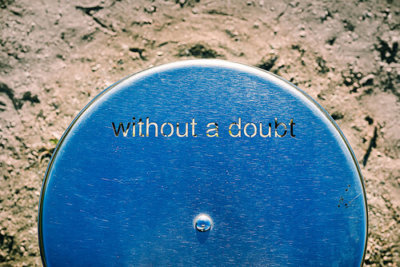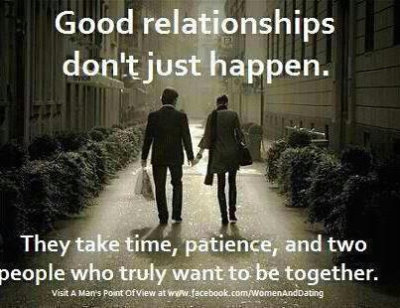The 5 Bad Habits That Cause Relationship Problems

By: epSos .de
by Andrea M. Darcy
Are your relationships often challenging, full of conflict, and exhausting? It could be that you are practising one or several of the following bad habits.
(Not sure what a good relationship is? Read our comprehensive Guide to Relationships for more).
5 Habits That Cause Relationship Problems
1. Assumptions.
When we love someone and have spent considerable time with them, it’s easy to assume we know just what they think and feel.
But making assumptions is the opposite of the two things that most ensure a healthy relationship. Namely, good listening and clear communication.
Don’t think you make assumptions about your partner? Look out for habits like finishing their sentences for them, and for words like ‘always’ and ‘never’ when you talk to them or about them. Things like ‘they always want to stay home on Fridays’. Or ‘they never want to meet my family’ are actually assumptions.
Even ‘good’ assumptions can be unhelpful. If, for example, you make it clear that you assume your partner is always going to be ‘reliable’? But they are secretly hankering to launch their own business? They might be too worried to tell you or even try, for fear of letting you down.
2. Projection
Psychological projection is when you attribute thoughts and feelings you don’t like in yourself onto those around you, usually without realising you are doing so. It can leave the other person you are projecting onto feeling trapped, not listened to, or even bullied.
For example, if you are deep down worried if your partner is your ‘One’ as your feelings have changed? Your shame might mean you ignore this and instead accuse them of not loving you enough.
Projection is a sign you don’t know yourself well enough, are too comfortable being a victim over claiming your power and responsibility, and/or are denying your feelings. It often relates to a childhood where you were punished for not being ‘good’ all the time so learned to hide your true feelings.
3. Doubt
Some doubt in relationships is normal, and a process of getting to know someone better before progressing to the next level of commitment. For example, you might doubt if you like your partner’s friends, if they are really your ‘one’, or if the sex will ever get better.
And some doubts are not destructive but useful. For example, if she’s taken money out of your account without asking, that is a doubt about her intentions and trustworthiness worth having.
But if you always have worries about every relationship, constantly question the other person’s motives, always find fault in the people you date and have the ‘it’s not me it was them’ mentality, and/or tend to assume the worse about your partner and about where your relationship is heading, then your doubts are more than likely an unconscious way to sabotage someone getting close to you and represent a psychological issue you need to face.
This might be fear of intimacy, insecurity and low self-worth, or a childhood trauma that damaged your ability to trust someone.
4. Lack of Boundaries
Personal boundaries are the ‘stop signs’ you have in life – the limits you place on how others can treat you and what they can expect from you. If you don’t set them, then you might find yourself often tired, secretly complaining about your partner, or feeling unappreciated and like a victim.
You might even end many a relationship, sure they ‘don’t respect you’ or ‘want to control you’, when really you are the one who did not set boundaries! Perhaps you even forcefully over gave of your time and energy without them asking for it (usually a sign of codependency).
Again, this often goes back to childhood patterning, where you were encouraged to fit yourself to the family dynamic over develop your own likes and personality.
5. Impulsivity
Impulsivity is a psychological issue that means you tend to act on your emotions and thoughts before you can stop yourself. It can leave your relationships fraught with ups and downs. These mean you are constantly having to ‘win back’ your partners trust and affection after upsetting them again.
Impulsivity is a main sign of borderline personality disorder, which is linked to childhood trauma. This is often in the form of physical or sexual abuse. It’s also connected to Adult ADHD.
Uh oh, Sounds Like Me… How Can I Stop These Bad Habits?
If you recognise yourself in the above, don’t panic. Bad habits can be changed, and recognition is always the powerful first step forward.
All of the above are things that can be worked on. You can, for example, start by trying some bibliotherapy (reading useful self-help books).
But if you recognise that these habits have been plaguing your relationships for some time? If not for always? That you are stuck in a pattern you can’t seem to break, and that these habits might indeed be connected to childhood experiences? it is recommended to seek the support of a counsellor or psychotherapist.
A mental health professional can guide you in clarifying what your unhelpful patterns are, and processing the experiences that led you to have such patterns. You’ll also learn new ways of thinking and behaving. These can mean you finally have the happy and healthy relationships you desire and deserve.
Some therapies actually specialise in helping you with the way you relate to others, and how it is affecting your life and wellbeing. These include dialetical behaviour therapy and schema therapy. If you are looking for a shorter-term therapy, you might want to consider cognitive analytic therapy or dynamic interpersonal therapy. Both of which focus on helping you understand and improve your relationships and thus life.
Is there a bad relationship habit we’ve missed? Share it below, we love hearing from you.
Andrea M. Darcy is a health writer and a mentor who loves writing about relationships. Find her @am_darcy






